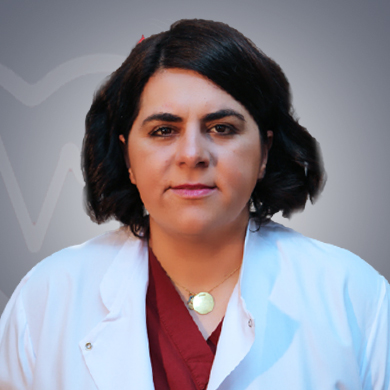
18 Years of experience
Speaks: English
Listed below are some of the conditions that Gynecologist Laparoscopic Surgeon like Ebru Coskun treats:
Endometriosis is a common condition treated by a Gynecologist Laparoscopic Surgeon. Endometriosis is a condition that involves the outgrowth of the tissue that lines a woman’s uterus. Laparoscopy is the way to detect the condition. The doctor may recommend surgery if you are suffering from severe endometriosis pain.
You must see a Gynecologist Laparoscopic surgeon if you have any of the below-listed symptoms:
Detection of symptoms as the earliest is important. For this, you need to consult a Gynecologist Laparoscopic Surgeon. The symptoms listed above suggest different gynecological conditions. Many of the conditions are successfully treated. If your symptoms indicate a serious health concern, consult a gynecologist who will design and treatment plan that is best for you.
Dr Ebru Coskun can be consulted from 11 am to 5 pm. The doctor is available for consultation and follow-ups 5 days a week. But the doctor is available on all days of the week for emergency cases. gynecologist generally works for 40-50 hours in a week and sees around 20-25 patients daily.
Some of the popular procedures that Dr Ebru Coskun performs are:
Ovarian Cystectomy is a common procedure performed by a Gynecologist Laparoscopic Surgeon who removes a cyst from the ovary. Also, laparoscopic surgery is a type of minimally invasive surgery that uses some small incisions in the lower abdomen.

Share Your Experience about Dr. Ebru Coskun

A Gynecologist Laparoscopic Surgeon is medical professionals who specialize in women’s reproductive health. The doctor is specialized in a minimally invasive approach that lets the surgeon operate without making large incisions. They handle a wide range of problems, including pregnancy, obstetrics, and childbirth, fertility issues, menstruation, and sexually transmitted diseases, hormone disorders, and others. They work closely with other doctors to design the treatment plan. The doctors trained in both obstetrics and gynecology are called OB/GYN doctors. The doctors also work in private clinics, hospitals, and specialty clinics. Most of them work in partnership with other medical experts. Some also become educators for medical students studying gynecology. Laparoscopic surgery is performed by a skilled and experienced surgeon.
A Gynecologist Laparoscopic Surgeon orders or performs the below-given tests to confirm gynecologist conditions:
A Gynecologist Laparoscopic Surgeon performs a few screening tests, to find out problems in people who show no symptoms. If women show symptoms related to their reproductive system (or gynecologic symptoms), different tests to identify the condition causing these (diagnostic procedures) might need to be done. The doctor will perform some tests to detect the condition and plan the treatment as per the test report.
A visit to a Gynecologist Laparoscopic Surgeon is recommended for the annual screening and when a woman shows symptoms like vaginal pain and vulvar and pelvic and abnormal bleeding in the uterus. Other signs you need to visit a gynecologist include: